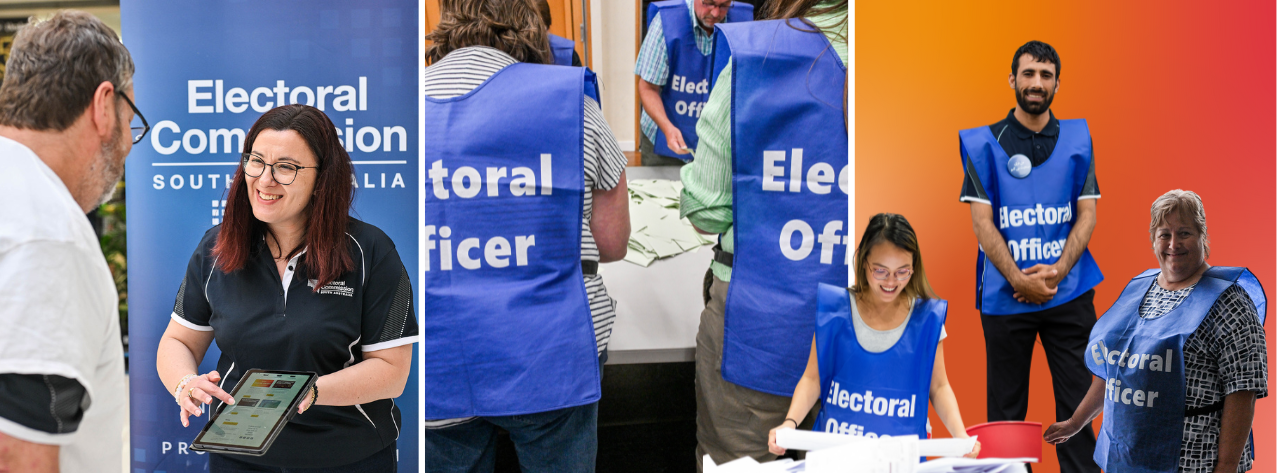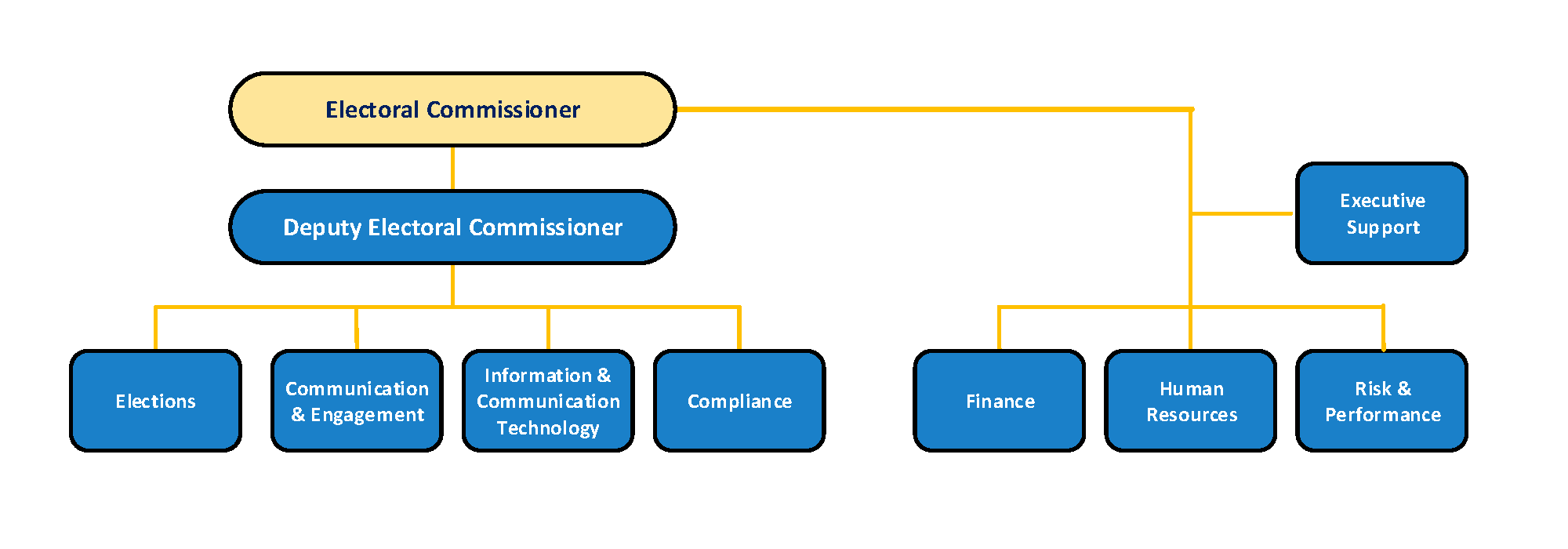
The Electoral Commission of South Australia (ECSA) is an independent agency and aims to ensure that demands for electoral services and participation in the democratic processes have been met fairly, honestly and within the law. The minister responsible is the Special Minister of State. ECSA provides professional and impartial electoral services for South Australians.
In 1907 the State Electoral Department was created as an independent office responsible for the conduct and administration of parliamentary elections in South Australia. The State Electoral Department became the State Electoral Office in 1993 and the Electoral Commission SA in 2009. The Electoral Commission of South Australia was the first electoral administration in the world to use computer technology to produce an electoral roll, the first prototype roll scanner, and the development and use of cardboard ballot boxes and voting compartments. We are constantly reviewing our work practices to ensure the quality of our electoral services and products.

What we do
The Electoral Commission of South Australia is legislatively responsible for:
- conducting and administering elections,
- ensuring electors are enrolled to vote,
- registering political parties, and
- maintaining the electoral roll in conjunction with the Australian Electoral Commission.
The Electoral Commission of South Australia's main functions are to conduct:
- State and Council elections every four years, including House of Assembly by-elections and council supplementary elections,
- to provide community awareness programs on the electoral system, and,
- to conduct elections for statutory authorities such as the Anangu Pitjantjatjara Yankunytjatjara Executive Board, Super SA, Super SA Select, Funds SA, the Architectural Practice Board of South Australia, and the South Eastern Water Conservation and Drainage Board.
In addition, the Electoral Commission of South Australia also conducts fee-for-service elections and ballots for other organisations that require the appointment of an independent returning officer. These elections are generally conducted by post and include the election of office-bearers to committees and boards and also the conduct of enterprise agreement ballots.
The Electoral Commission SA conducts the entire election process in accordance with the organisation's constitution and/or election rules. Where the election rules are deficient, the Electoral Commission SA may provide advice on established electoral practices and processes, such as:
- provision of a list of eligible voters,
- nominations,
- methods of voting,
- informality,and
- counting procedures.
To conduct an election or ballot, the organisation must provide the Electoral Commission SA a certified list of eligible voters.
For further information visit our publications page.
The Electoral Commissioner of South Australia, Mick Sherry

Mick Sherry was appointed as the Electoral Commissioner of South Australia on 20 February 2017.
He served as one of the Commissioners on the 2020 and 2024 South Australian Electoral Districts Boundaries Commission and is currently Chair of the Electoral Council of Australia and New Zealand (ECANZ).
Prior to his appointment as Electoral Commissioner, Mr Sherry held roles at the state and federal level including with South Australia Police, the Western Australia Royal Commission into Police Corruption, the Corruption and Crime Commission of Western Australia and the Victorian Office of Police Integrity.
In 2015 Mr Sherry was appointed as the Australian Electoral Officer for the Northern Territory and Manager of the Australian Electoral Commission (AEC) Northern Territory office. During his time with the AEC, he was responsible for the conduct of the 2016 federal election in the Northern Territory and the 2016 redistribution of electoral divisions in the Northern Territory.
Mr Sherry holds several tertiary qualifications including a Master of Arts and is a graduate of the Australian Institute of Company Directors.
